- 12 Angry Men (1957)
- Anatomy of a Murder (1959)
- A Few Good Men (1992)
- Witness for the Prosecution (1957)
- JFK (1991)
- The Verdict (1982)
- Music Box (1989)
- Separate But Equal (1991)
- Helter Skelter (1976)
- Indictment: The McMartin Trial (1995)
- Erin Brockovich (2000)
- ...And Justice for All (1979)
- The Caine Mutiny (1954)
- Breaker Morant (1980)
- My Cousin Vinny (1992)
- A Civil Action (1998)
- Liar Liar (1997)
- Class Action (1991)
- Presumed Innocent (1990)
- To Kill a Mockingbird (1962)
- Illegal (1955)
- True Believer (1989)
- Man in the Middle (1964)
- Murder in the First (1995)
- Ghosts of Mississippi (1996)
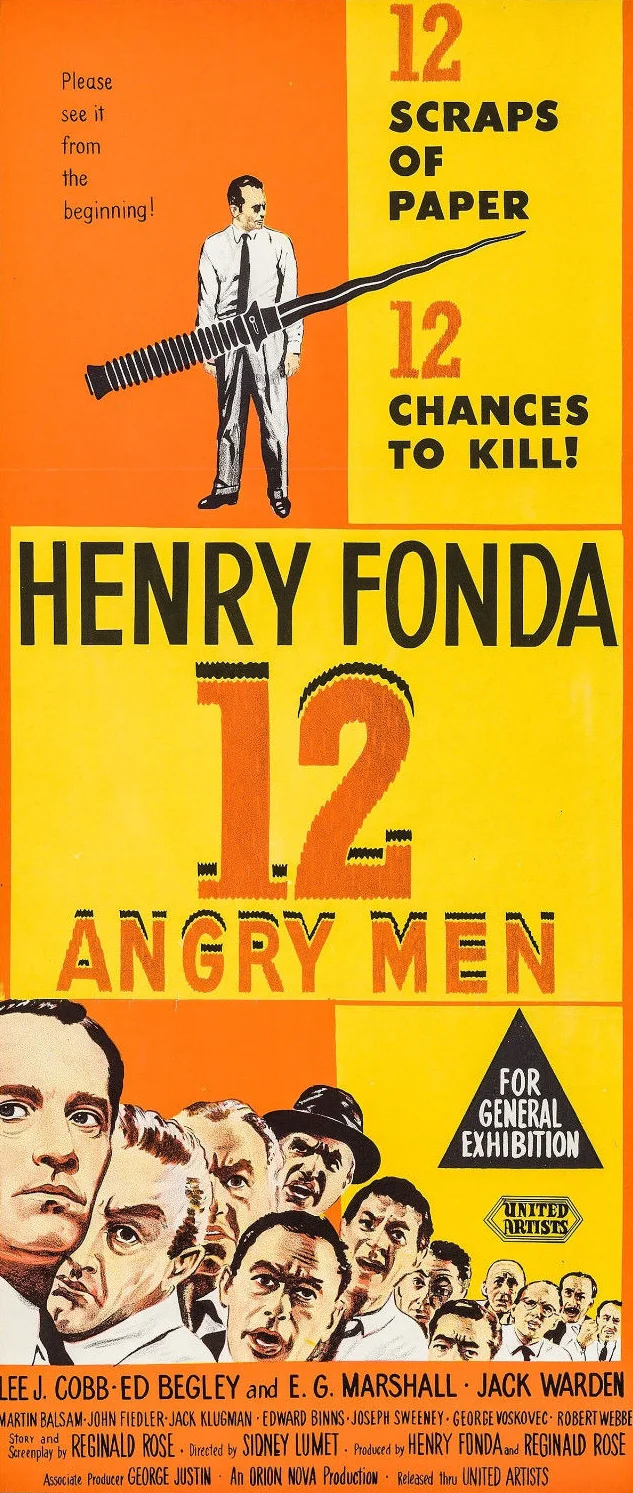 12 Angry Men is a brilliant film that's dependent on the script and performances. The best part is the
human aspect. Strangers come together and lay bare their flawed logical reasoning. The ending is powerful because
after what the jurors had accomplished as a group, they go their separate ways and never see each other again for
the rest of their lives. In fact, 12 Angry Men should be a required viewing for all Americans before
they're ready to be jurors.
12 Angry Men is a brilliant film that's dependent on the script and performances. The best part is the
human aspect. Strangers come together and lay bare their flawed logical reasoning. The ending is powerful because
after what the jurors had accomplished as a group, they go their separate ways and never see each other again for
the rest of their lives. In fact, 12 Angry Men should be a required viewing for all Americans before
they're ready to be jurors.
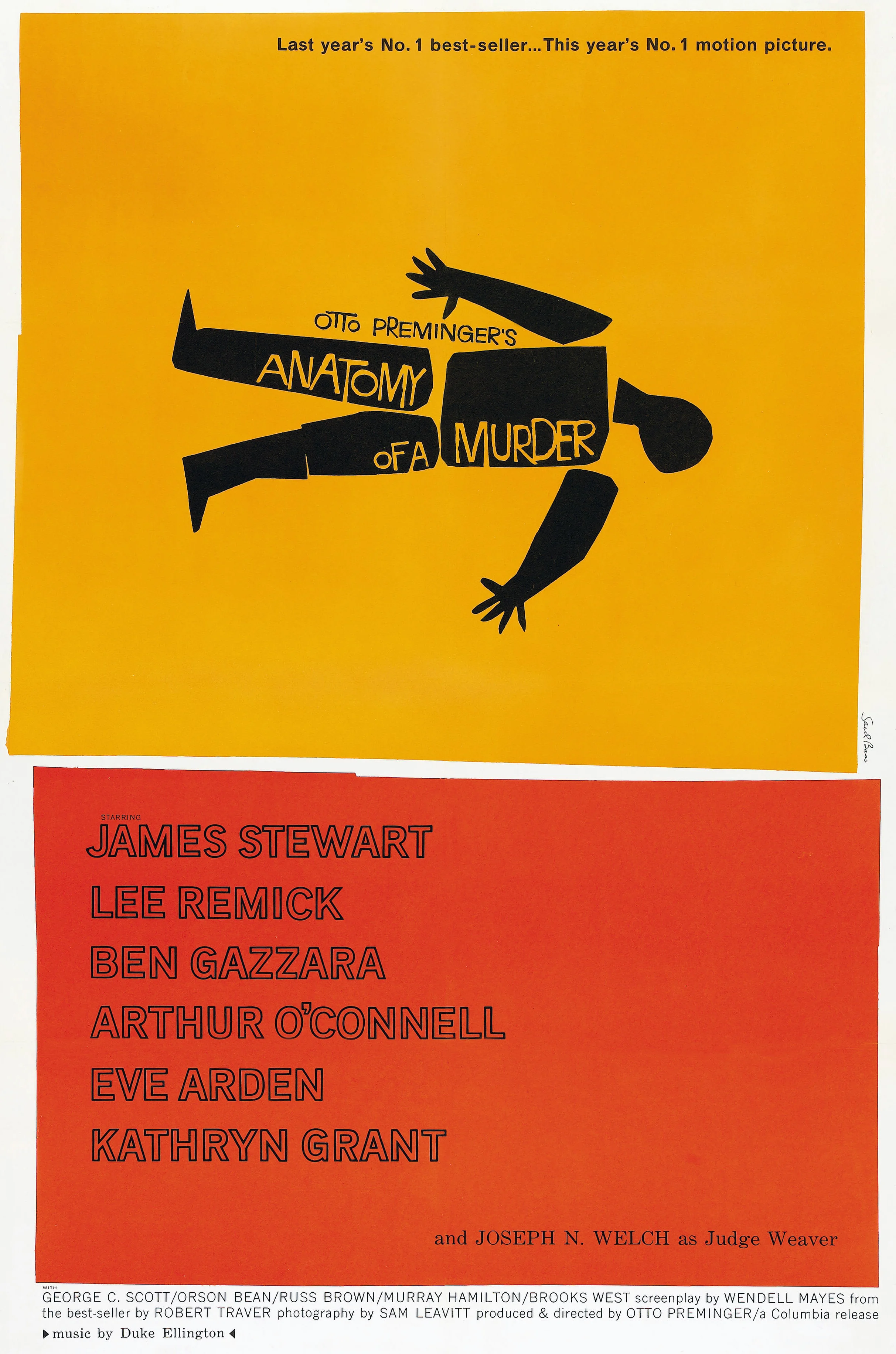 Full of brilliant writing, brilliant acting, and brilliant direction, Anatomy of a Murder may be almost
three hours long, but it's very fast-paced and serves as a strong example of courtroom procedure. James Stewart
gives one of the best performances of his career and is always riveting to watch during the trial.
Full of brilliant writing, brilliant acting, and brilliant direction, Anatomy of a Murder may be almost
three hours long, but it's very fast-paced and serves as a strong example of courtroom procedure. James Stewart
gives one of the best performances of his career and is always riveting to watch during the trial.
 Thanks to Aaron Sorkin's outstanding screenplay, the performances are thoroughly outstanding. As Colonel
Nathan Jessep, Jack Nicholson has a Oscar-winning clip when he yelled after being pressed by Tom Cruise:
"You can't handle the truth!"
Thanks to Aaron Sorkin's outstanding screenplay, the performances are thoroughly outstanding. As Colonel
Nathan Jessep, Jack Nicholson has a Oscar-winning clip when he yelled after being pressed by Tom Cruise:
"You can't handle the truth!"
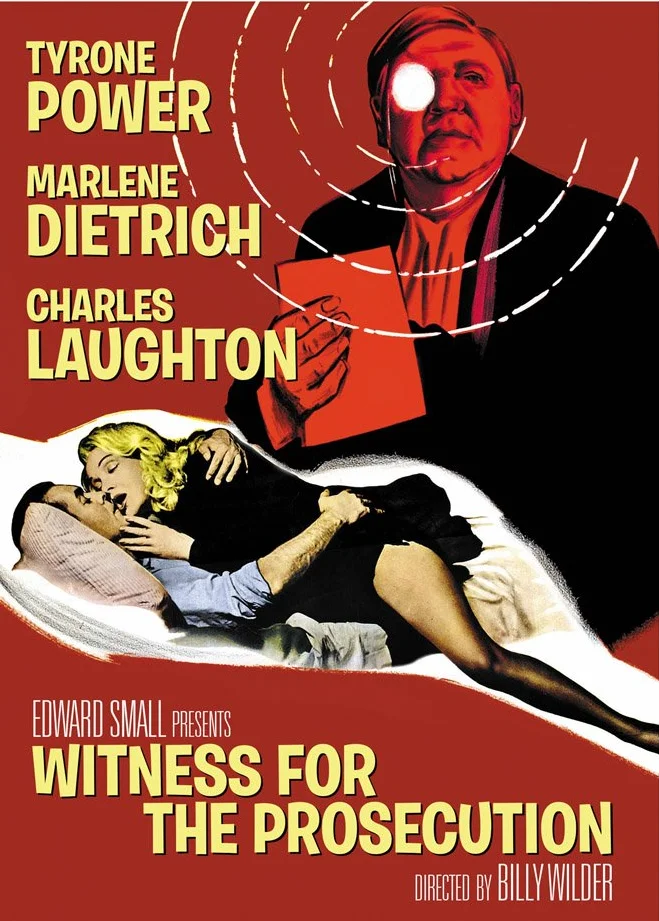 Adapted from a Agatha Christie's novel, Witness for the Prosecution is a classic Billy Wilder picture.
Charles Laughton gives the most outstanding performance while Marlene Dietrich is fantastic. The ending is the
cherry on top of the cake.
Adapted from a Agatha Christie's novel, Witness for the Prosecution is a classic Billy Wilder picture.
Charles Laughton gives the most outstanding performance while Marlene Dietrich is fantastic. The ending is the
cherry on top of the cake.
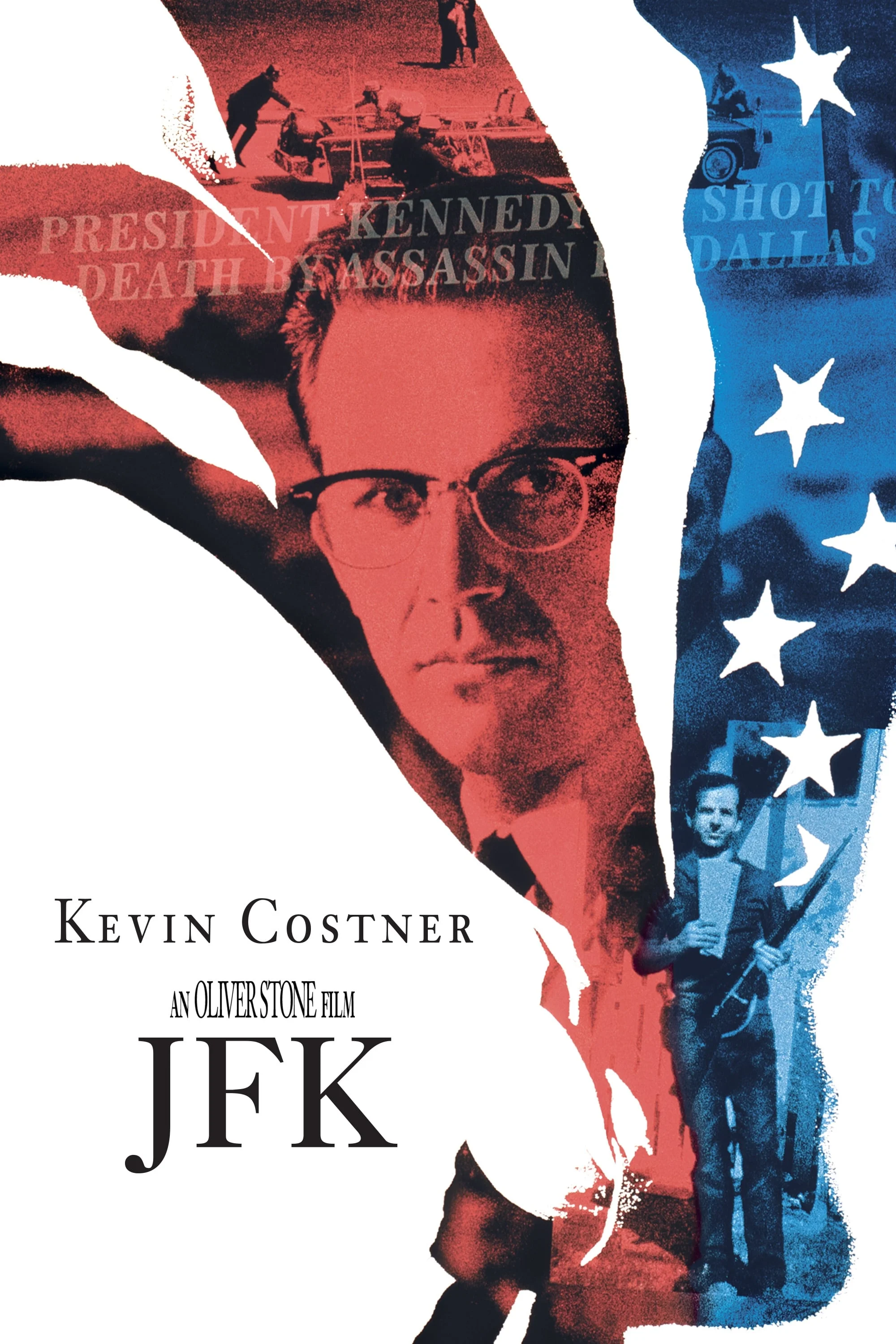 JFK is an incredible masterpiece, representing Oliver Stone's best. Outstanding are the acting,
storytelling, and, most of all, editing. The best moment is when Jim Garrison, after learning the real plot
from Donald Sutherland's character, summed up the startling discovery by saying, "The size of this is...beyond me."
JFK is an incredible masterpiece, representing Oliver Stone's best. Outstanding are the acting,
storytelling, and, most of all, editing. The best moment is when Jim Garrison, after learning the real plot
from Donald Sutherland's character, summed up the startling discovery by saying, "The size of this is...beyond me."
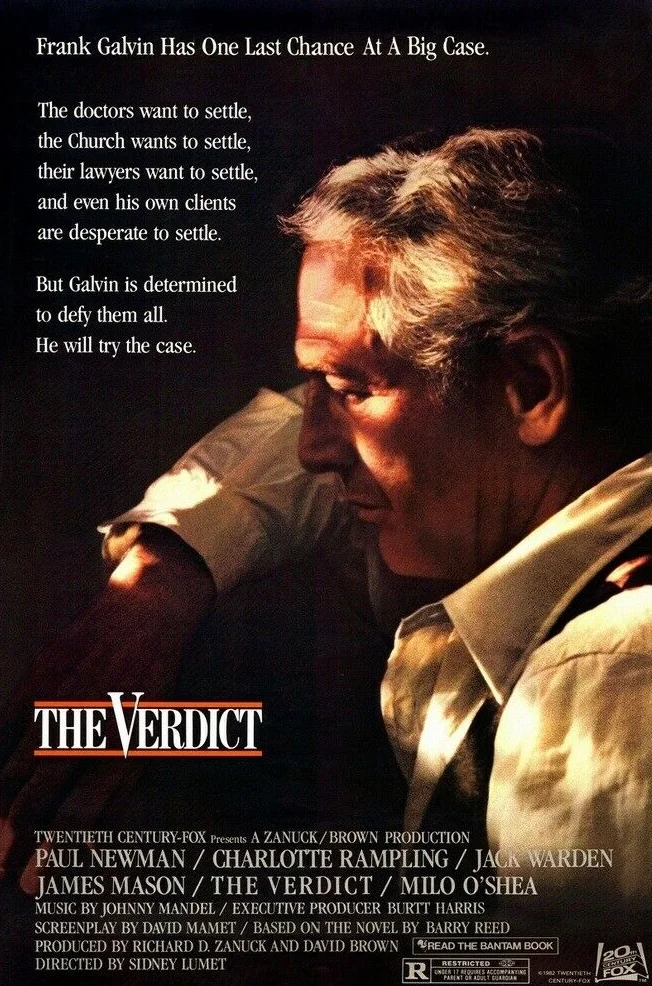 "There are no other cases. This is the case." The Verdict is Paul Newman's finest hour of his acting
career. That much is brilliantly shown from the get-go when he's playing pinball while drinking a glass of
scotch. His alcoholic character has given up on life, but when a case comes along that's worth fighting for,
he finally becomes a changed man and finds meaning in life.
"There are no other cases. This is the case." The Verdict is Paul Newman's finest hour of his acting
career. That much is brilliantly shown from the get-go when he's playing pinball while drinking a glass of
scotch. His alcoholic character has given up on life, but when a case comes along that's worth fighting for,
he finally becomes a changed man and finds meaning in life.
 All too real, Music Box is a powerful drama about a daughter realizing the truth of who his father is,
a former Nazi commandant whose brutal murders of Jews went unpunished. The lies he tells her are chilling, and
she had been in denial for so long because she was thinking about how well he treated her all her life.
All too real, Music Box is a powerful drama about a daughter realizing the truth of who his father is,
a former Nazi commandant whose brutal murders of Jews went unpunished. The lies he tells her are chilling, and
she had been in denial for so long because she was thinking about how well he treated her all her life.
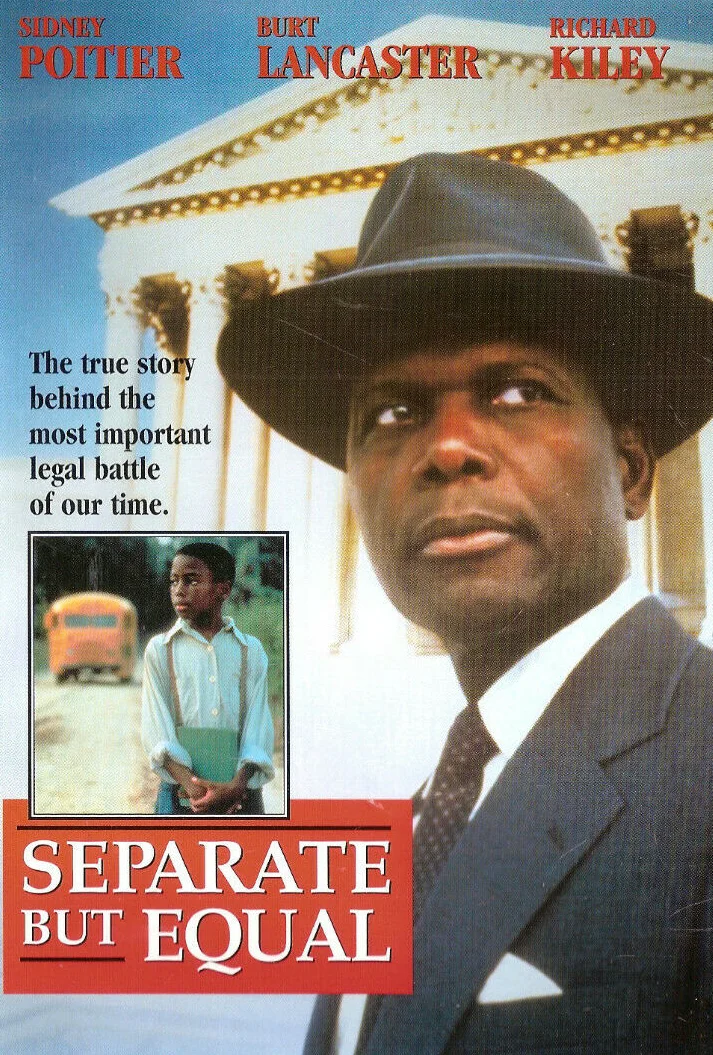 It's the most famous case in U.S. history of education which started with Plessy v. Ferguson and concluded
with Brown v. Board of Education. In between is a 58-year black struggle for equal rights. The final
verdict was the beginning of the end for racial segregation that dominated race relations for so long in the
United States. Hence, there's a lot to learn from this film.
It's the most famous case in U.S. history of education which started with Plessy v. Ferguson and concluded
with Brown v. Board of Education. In between is a 58-year black struggle for equal rights. The final
verdict was the beginning of the end for racial segregation that dominated race relations for so long in the
United States. Hence, there's a lot to learn from this film.
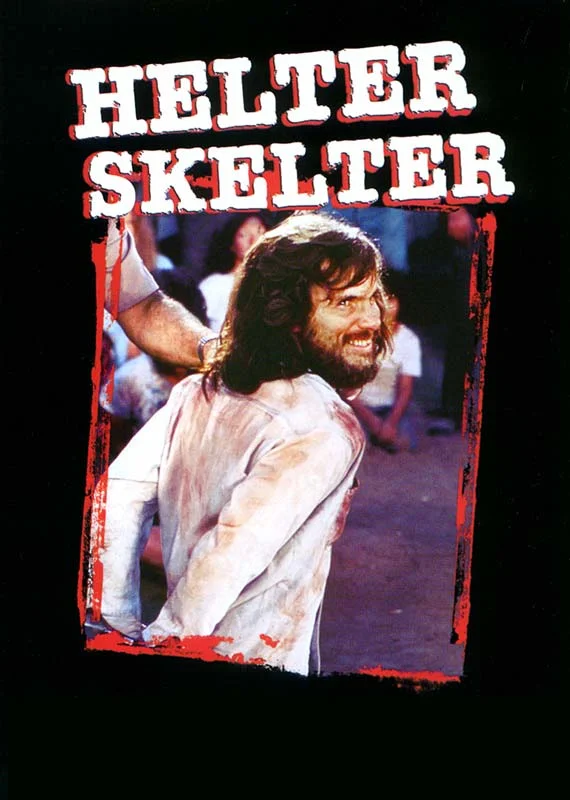 Vincent Bugliosi's Helter Skelter is the best true crime book ever written. You hear a lot about Tom
Cruise, John Travolta, and Scientology, but Charles Manson came way, way before them and borrowed a lot from
its teachings via The Process. The result is two nights of Helter Skelter that disturbed everybody afterwards.
Vincent Bugliosi's Helter Skelter is the best true crime book ever written. You hear a lot about Tom
Cruise, John Travolta, and Scientology, but Charles Manson came way, way before them and borrowed a lot from
its teachings via The Process. The result is two nights of Helter Skelter that disturbed everybody afterwards.
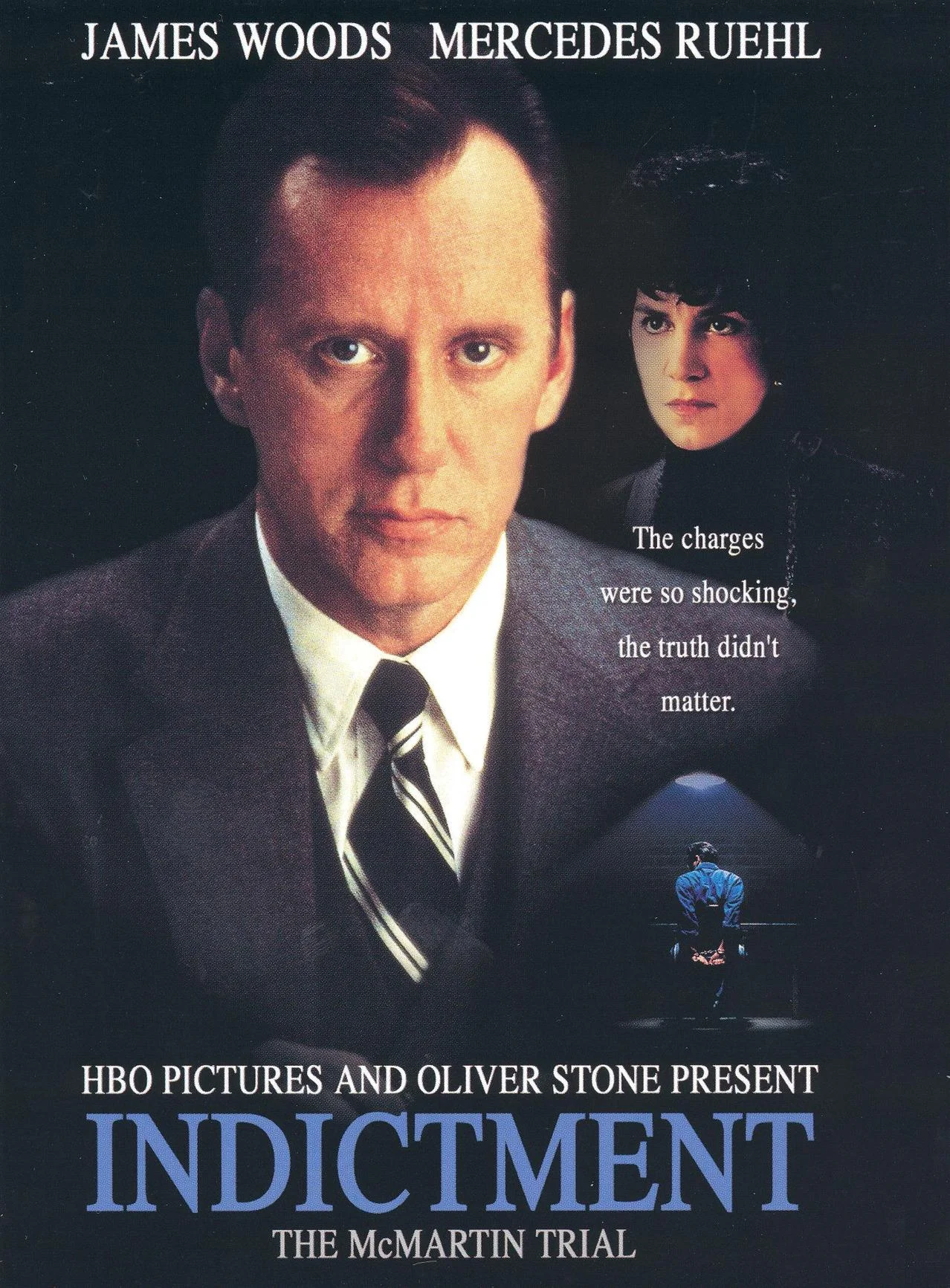 Ever heard of the word "overcharged"? Then, look no further than Indictment: The McMartin Trial. Over
300 charges were filed against the accused for child abuse at their family-run daycare. They were tried for
seven years, and the state spent over $15 million on the case. Not one person was found guilty of a single
charge, making it the longest and most expensive case in American history.
Ever heard of the word "overcharged"? Then, look no further than Indictment: The McMartin Trial. Over
300 charges were filed against the accused for child abuse at their family-run daycare. They were tried for
seven years, and the state spent over $15 million on the case. Not one person was found guilty of a single
charge, making it the longest and most expensive case in American history.
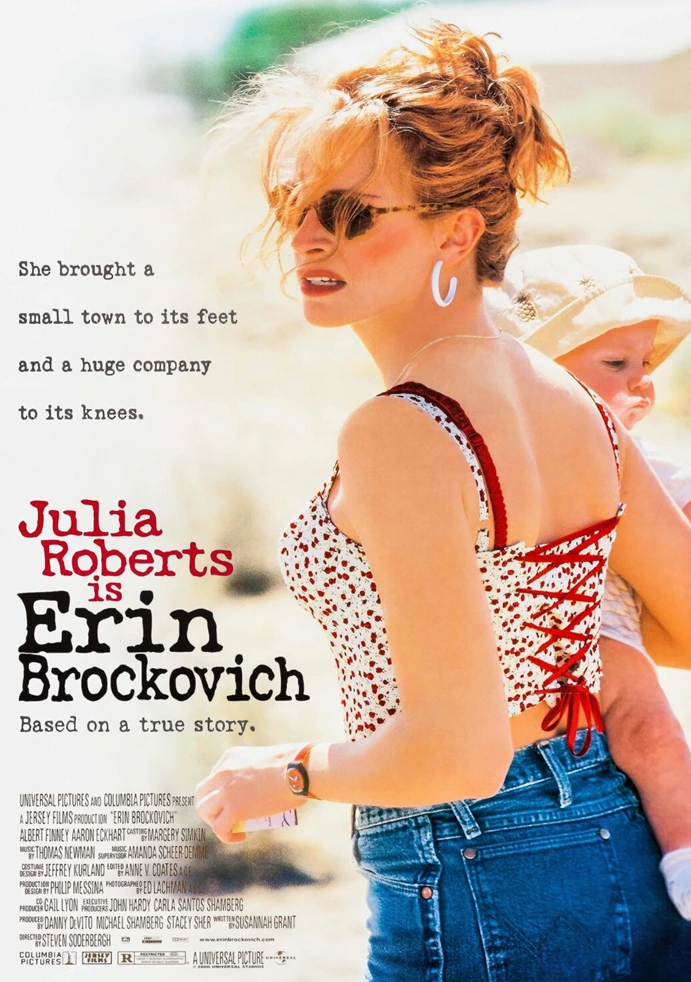 Julia Roberts earned the Oscar for Best Actress. How much of what's shown in the film is true? It turns
out to be nearly everything. Even the real Erin Brockovich called it "98% accurate."
Simply put, the movie is better when Julia Roberts stops being a bitch with an attitude
and starts gathering facts about what's happening to residents of the town. During this process, Ed Masry
begins to see Erin's worth through how she works with them.
Julia Roberts earned the Oscar for Best Actress. How much of what's shown in the film is true? It turns
out to be nearly everything. Even the real Erin Brockovich called it "98% accurate."
Simply put, the movie is better when Julia Roberts stops being a bitch with an attitude
and starts gathering facts about what's happening to residents of the town. During this process, Ed Masry
begins to see Erin's worth through how she works with them.
 The best part is the ending when Al Pacino actually did the go-for-broke opening statement in just one take.
When the judge is finally outraged, Kirkland yells, "You're out of order! You're out of order! The whole trial
is out of order! They're out of order!" Honestly, it was a lose-lose situation for his character, so why not?
That's what he had been thinking all along.
The best part is the ending when Al Pacino actually did the go-for-broke opening statement in just one take.
When the judge is finally outraged, Kirkland yells, "You're out of order! You're out of order! The whole trial
is out of order! They're out of order!" Honestly, it was a lose-lose situation for his character, so why not?
That's what he had been thinking all along.
 Nearing the end of Humphrey Bogart's career, The Caine Mutiny is another proof of his greatness. José
Ferrer is brilliant as Greenwald the lawyer. They help transform it into an intellectual picture, dealing with
the aftermath of a mutiny. Greenwald's drunken words at the end put each of the characters in perspective.
Nearing the end of Humphrey Bogart's career, The Caine Mutiny is another proof of his greatness. José
Ferrer is brilliant as Greenwald the lawyer. They help transform it into an intellectual picture, dealing with
the aftermath of a mutiny. Greenwald's drunken words at the end put each of the characters in perspective.
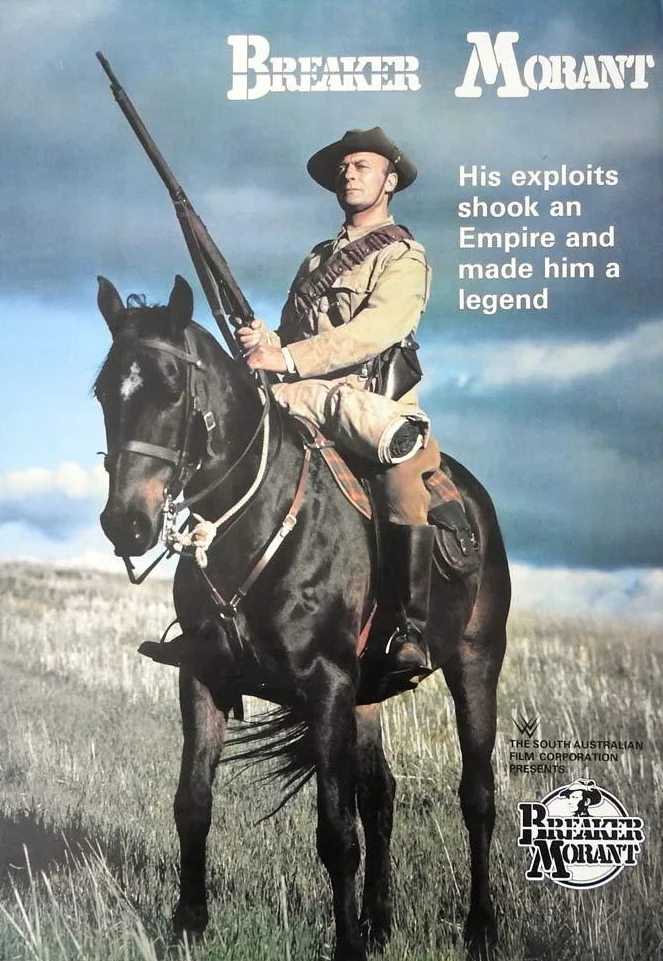 Breaker Morant is perhaps the best Australian film made. The reasons are two: excellent acting and striking
cinematography. To this day, nobody knows the full story of what happened, but one thing is for sure: the soldiers
were guilty. Like always, war blurs the line between right and wrong.
Breaker Morant is perhaps the best Australian film made. The reasons are two: excellent acting and striking
cinematography. To this day, nobody knows the full story of what happened, but one thing is for sure: the soldiers
were guilty. Like always, war blurs the line between right and wrong.
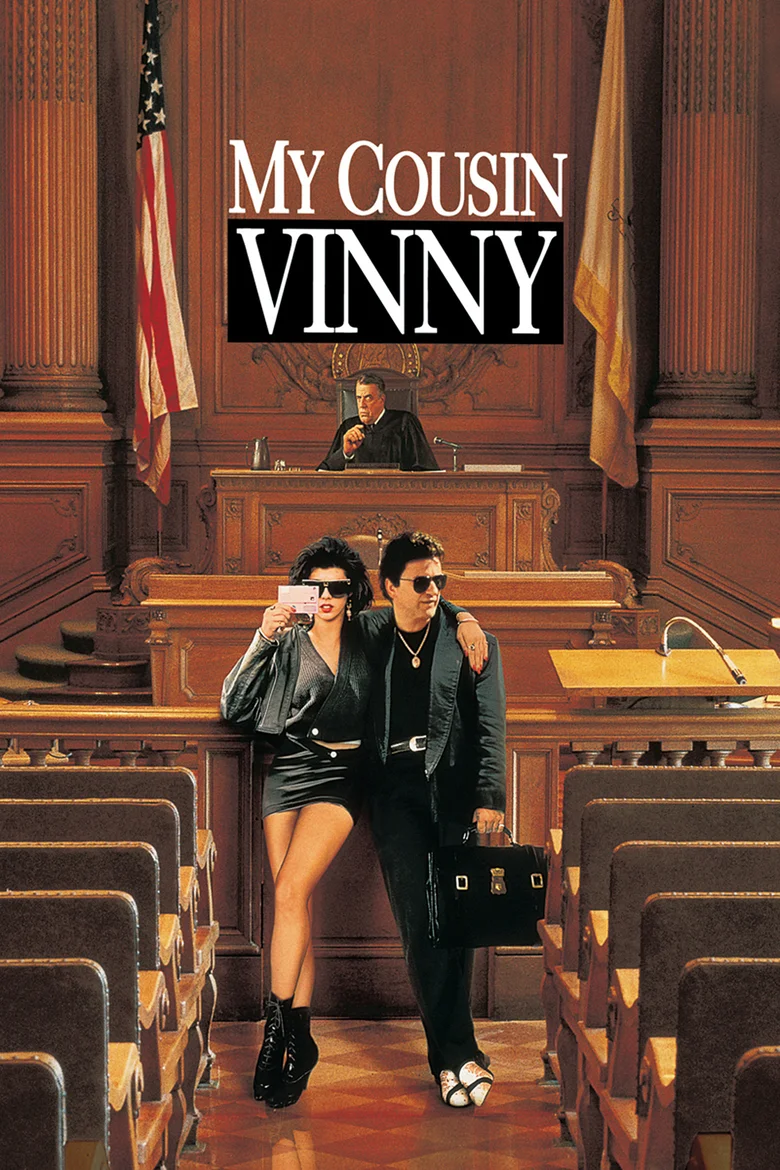 A surprise winner in 1991, My Cousin Vinny is an unusual comedy that saw Marisa Tomei win a deserving Oscar
for Best Supporting Actress which was clinched by the automotive knowledge scene. It has been praised often for
showing off credible courtroom procedure and trial strategy. Joe Pesci, Fred Gwynne, and Austin Pendleton are funny.
A surprise winner in 1991, My Cousin Vinny is an unusual comedy that saw Marisa Tomei win a deserving Oscar
for Best Supporting Actress which was clinched by the automotive knowledge scene. It has been praised often for
showing off credible courtroom procedure and trial strategy. Joe Pesci, Fred Gwynne, and Austin Pendleton are funny.
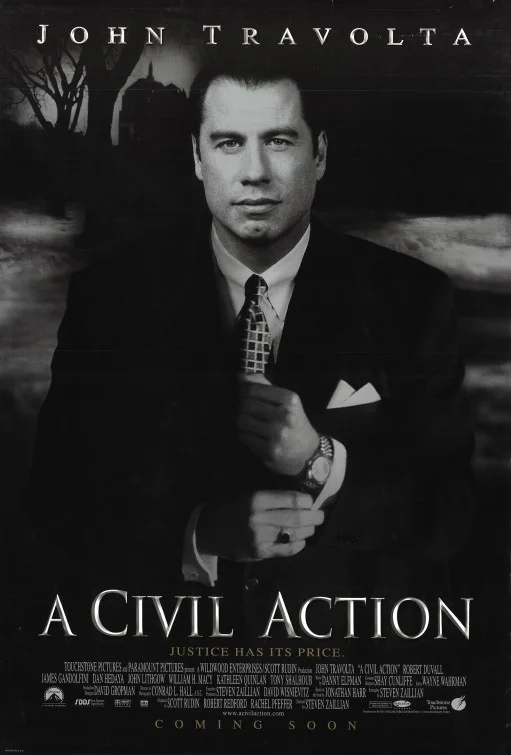 It's a remarkable performance and the right kind for John Travolta to dig deeply, changing his personality over
time. The 1980 case of environmental pollution that took place in Woburn, Massachusetts, is interesting to follow
and can happen anywhere. Somewhere along the way is a lesson of ethics about what matters more: money or justice.
It's a remarkable performance and the right kind for John Travolta to dig deeply, changing his personality over
time. The 1980 case of environmental pollution that took place in Woburn, Massachusetts, is interesting to follow
and can happen anywhere. Somewhere along the way is a lesson of ethics about what matters more: money or justice.
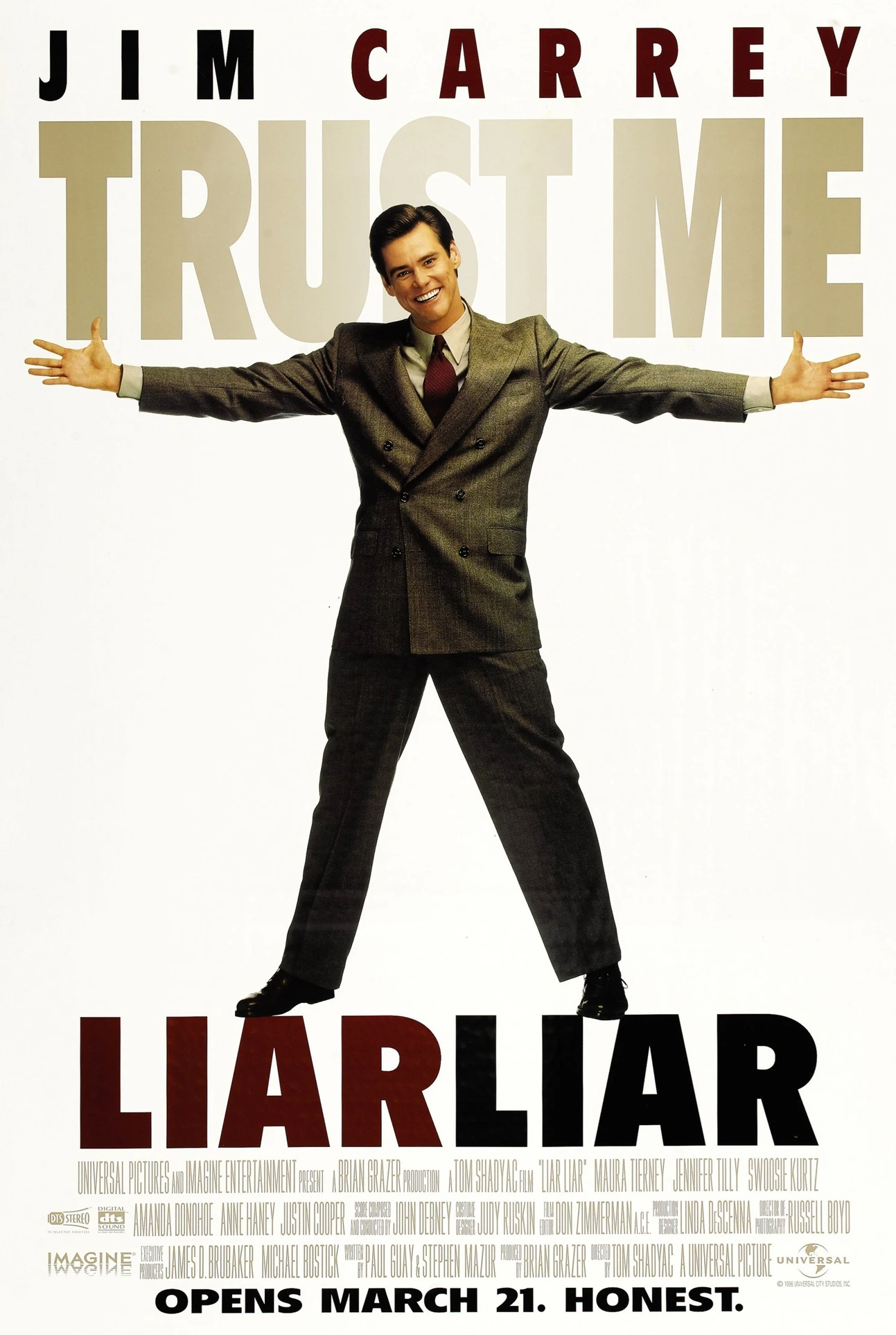 The best film by Jim Carrey? Maybe. Liar Liar is quite funny. Imagine a normal actor playing the same role.
The results would've been totally different, losing so much of the spontaneity that could only be generated by
Jim Carrey. Just look at Cary Elwes trying to do "The Claw." Impressive is the story which is quality stuff;
there's a moral involved in regard to lying all the time.
The best film by Jim Carrey? Maybe. Liar Liar is quite funny. Imagine a normal actor playing the same role.
The results would've been totally different, losing so much of the spontaneity that could only be generated by
Jim Carrey. Just look at Cary Elwes trying to do "The Claw." Impressive is the story which is quality stuff;
there's a moral involved in regard to lying all the time.
 Class Action features a story that is well-written and is full of strong acting performances, most
especially by Gene Hackman and Mary Elizabeth Mastrantonio. Adroitly directed by Michael Apted, it's a complex
film that'll pay off in dividends, and the ending is great. It's interesting to watch the lawyers, who happen to
be father and daughter, on the opposing sides.
Class Action features a story that is well-written and is full of strong acting performances, most
especially by Gene Hackman and Mary Elizabeth Mastrantonio. Adroitly directed by Michael Apted, it's a complex
film that'll pay off in dividends, and the ending is great. It's interesting to watch the lawyers, who happen to
be father and daughter, on the opposing sides.
 Presumed Innocent is an excellent courtroom drama picture if the suspension of disbelief is applied from
start to finish. Yes, the premise is hard to swallow, but as long as everything else reigns supreme, the lack of
veracity can be safely ignored. The twist at the end is unpredictable.
Presumed Innocent is an excellent courtroom drama picture if the suspension of disbelief is applied from
start to finish. Yes, the premise is hard to swallow, but as long as everything else reigns supreme, the lack of
veracity can be safely ignored. The twist at the end is unpredictable.
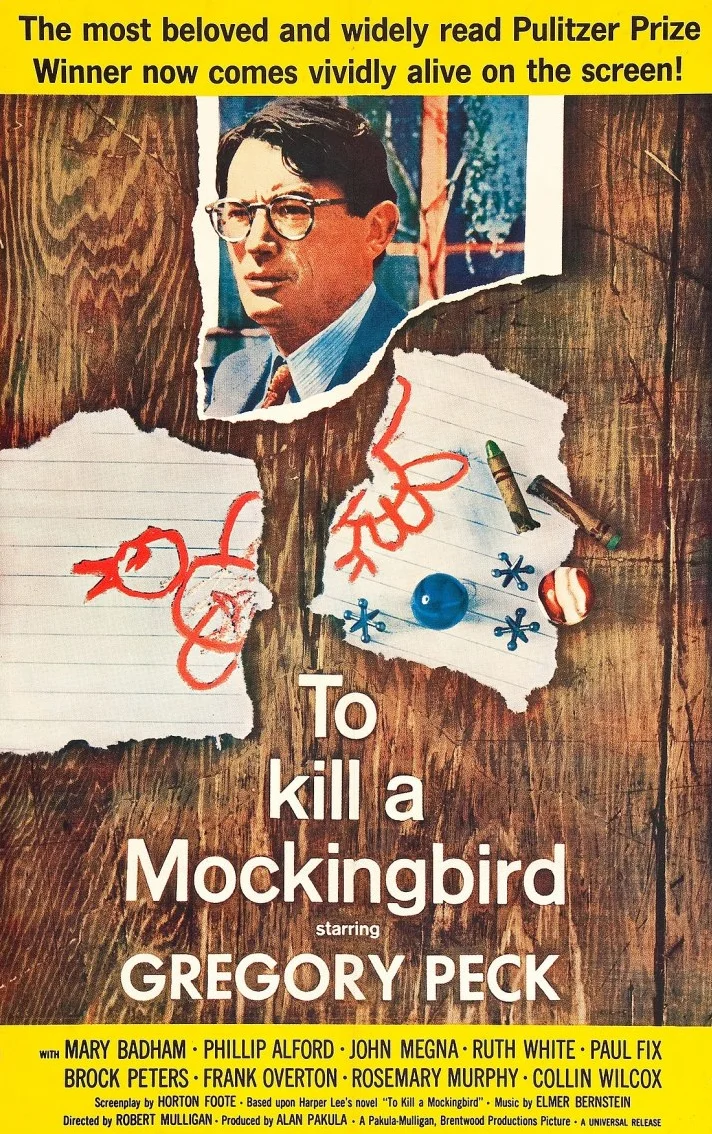 Taking place in the Jim Crow South, To Kill a Mockingbird is a noble film about righting a wrong. Gregory
Peck plays a fine character in Atticus Finch who has a superb run in the last twenty minutes. The child actors,
especially Mary Badham, are excellent. Not uttering a single word, Robert Duvall has a captivating presence as
Boo Radley.
Taking place in the Jim Crow South, To Kill a Mockingbird is a noble film about righting a wrong. Gregory
Peck plays a fine character in Atticus Finch who has a superb run in the last twenty minutes. The child actors,
especially Mary Badham, are excellent. Not uttering a single word, Robert Duvall has a captivating presence as
Boo Radley.
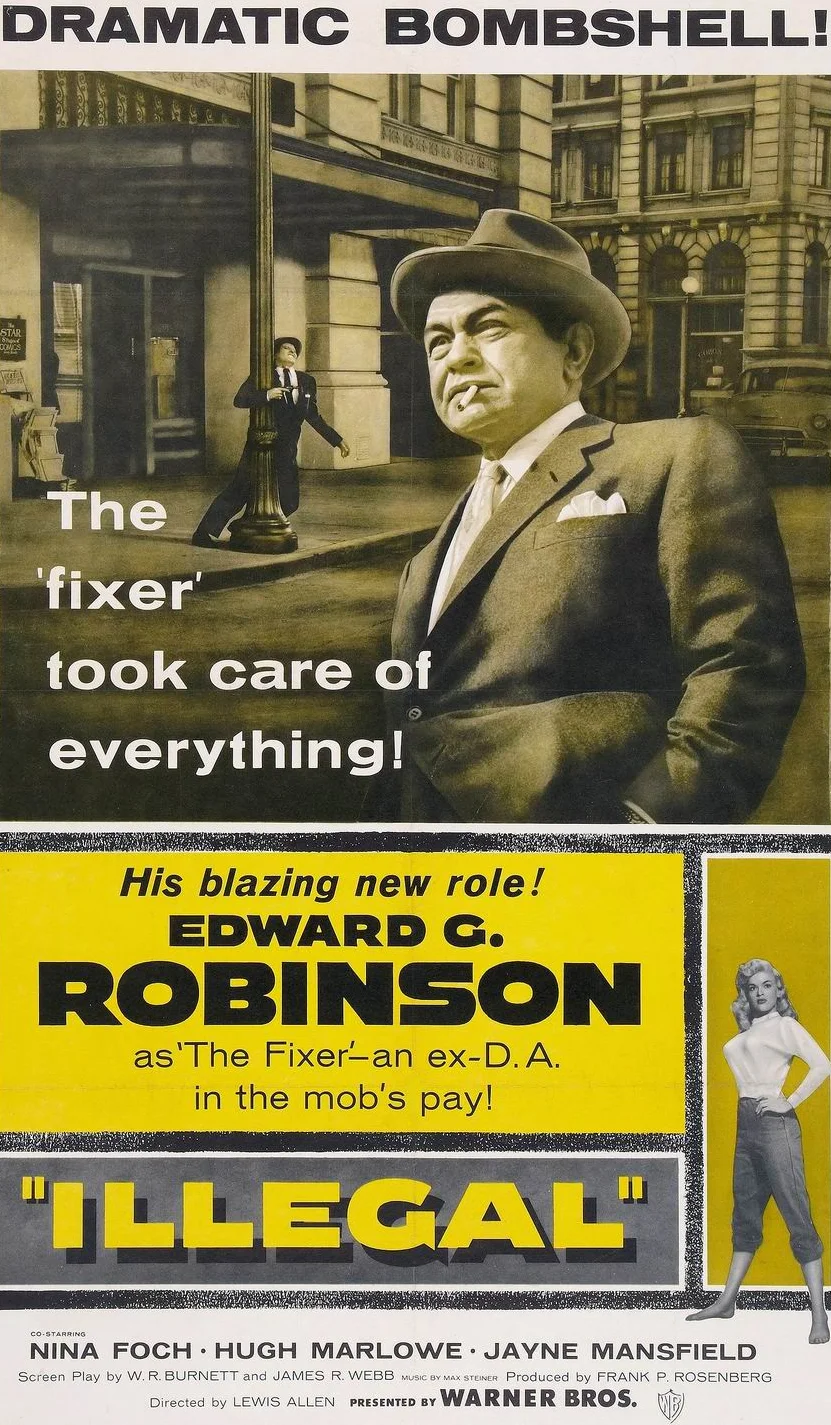 Illegal is the story of the greatest lawyer in the world. Edward G. Robinson dominates. W.R. Burnett and
James R. Webb's script is the more the merrier. These two is what makes the time go fast. Yeah, there's no story
for a long while. When it appears, the tie-ins become apparent. In the meantime, feast your eyes on Jayne
Mansfield who makes her debut in a Hollywood picture.
Illegal is the story of the greatest lawyer in the world. Edward G. Robinson dominates. W.R. Burnett and
James R. Webb's script is the more the merrier. These two is what makes the time go fast. Yeah, there's no story
for a long while. When it appears, the tie-ins become apparent. In the meantime, feast your eyes on Jayne
Mansfield who makes her debut in a Hollywood picture.
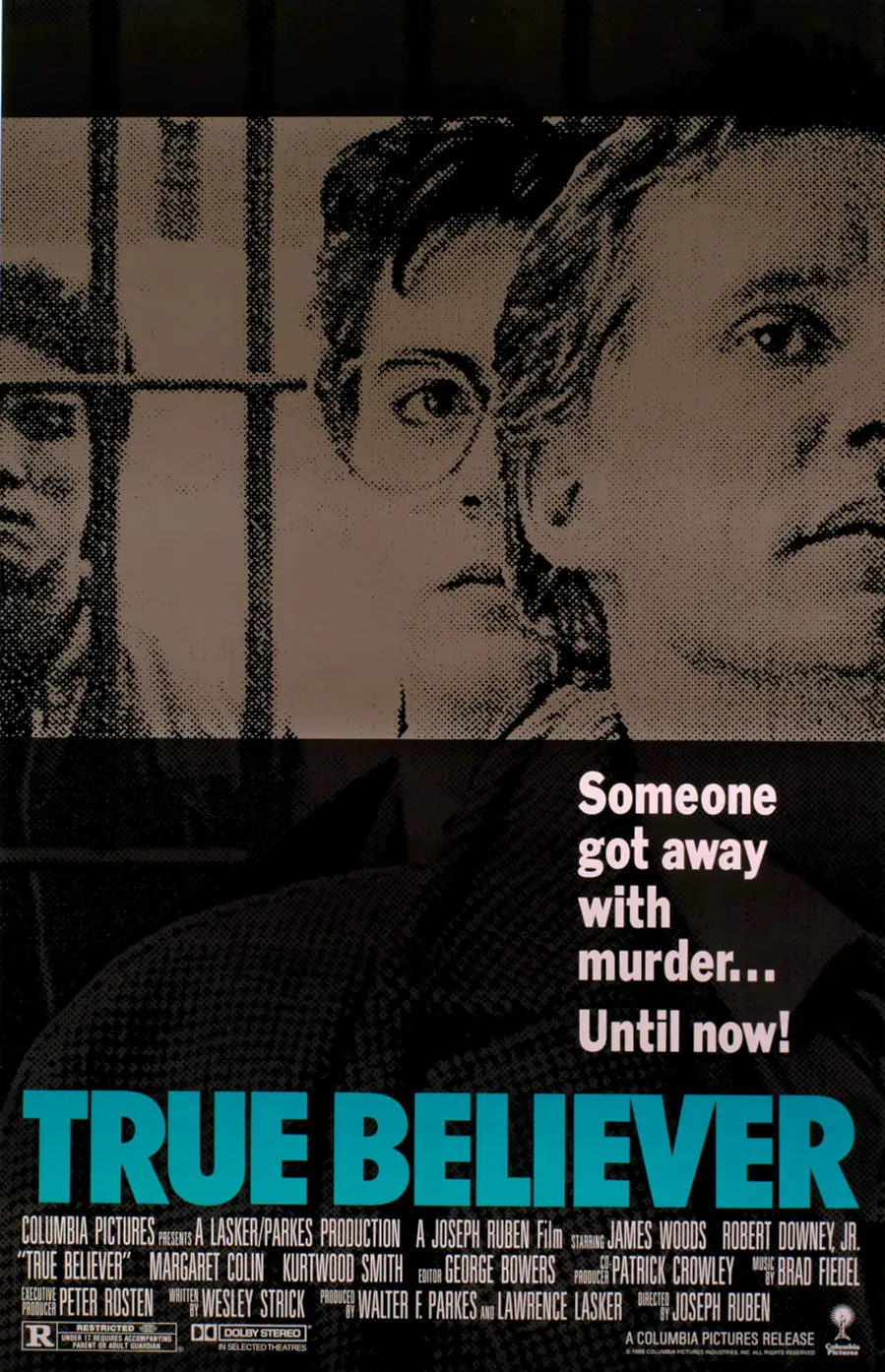 True Believer plays out the same way as The Verdict, and make no mistake: it's 100% James Woods'
show. This is an entertaining tale of a disillusioned lawyer who's down on his luck and finally manages to find
a needle in the haystack to make a last-ditch effort to save his client from being sent away again for a murder
he didn't commit.
True Believer plays out the same way as The Verdict, and make no mistake: it's 100% James Woods'
show. This is an entertaining tale of a disillusioned lawyer who's down on his luck and finally manages to find
a needle in the haystack to make a last-ditch effort to save his client from being sent away again for a murder
he didn't commit.
 Before there was Breaker Morant and before there was A Few Good Men, there was
Man in the Middle. Robert Mitchum gives his usual intelligent portrayal of a military man he's always
been underrated for. Keenan Wynn does his best imitation of "I'm really that nutso" guilty suspect. But it's
Trevor Howard who steals the picture with his quiet straightforward display of strong British acting. That's
when the theme started to work with its presentation of insanity defense.
Before there was Breaker Morant and before there was A Few Good Men, there was
Man in the Middle. Robert Mitchum gives his usual intelligent portrayal of a military man he's always
been underrated for. Keenan Wynn does his best imitation of "I'm really that nutso" guilty suspect. But it's
Trevor Howard who steals the picture with his quiet straightforward display of strong British acting. That's
when the theme started to work with its presentation of insanity defense.
 If there has to be a top performance in Kevin Bacon's oeuvre, it's Murder in the First. The same goes for
Christian Slater. The story and the courtroom drama about what happened at Alcatraz are compelling stuff although
the story isn't accurate for the most part.
If there has to be a top performance in Kevin Bacon's oeuvre, it's Murder in the First. The same goes for
Christian Slater. The story and the courtroom drama about what happened at Alcatraz are compelling stuff although
the story isn't accurate for the most part.
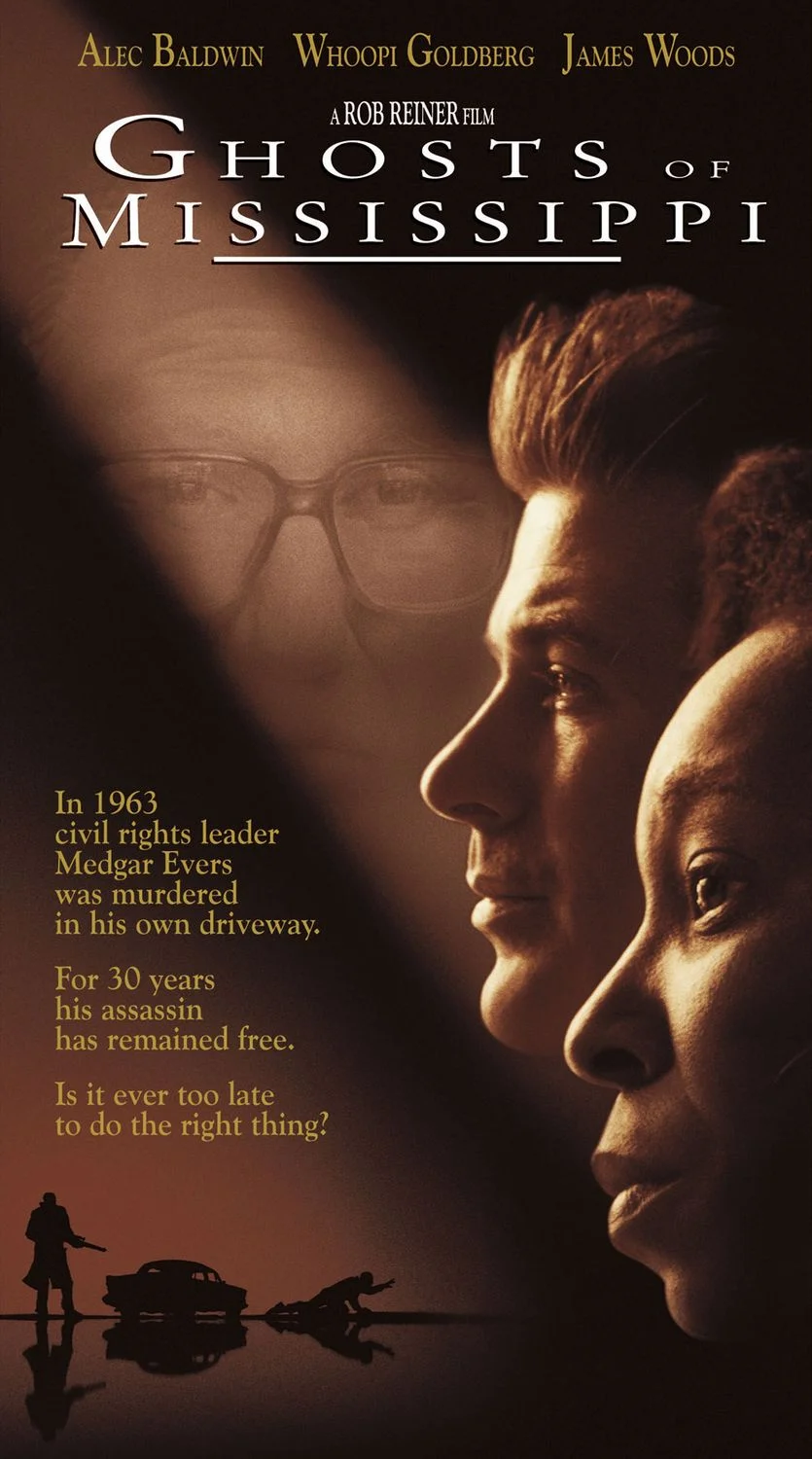 Ghosts of Mississippi is the story of justice for civil rights activist Medgar Evers' assassination and
is a great history lesson. When I say the last part, Rob Reiner actually followed the events as they happened.
So, kudos to him for doing that, a rarity in Hollywood films. Matthew Mungle and Deborah La Mia Denaver were
rewarded with an Oscar nomination for James Woods' makeup work.
Ghosts of Mississippi is the story of justice for civil rights activist Medgar Evers' assassination and
is a great history lesson. When I say the last part, Rob Reiner actually followed the events as they happened.
So, kudos to him for doing that, a rarity in Hollywood films. Matthew Mungle and Deborah La Mia Denaver were
rewarded with an Oscar nomination for James Woods' makeup work.